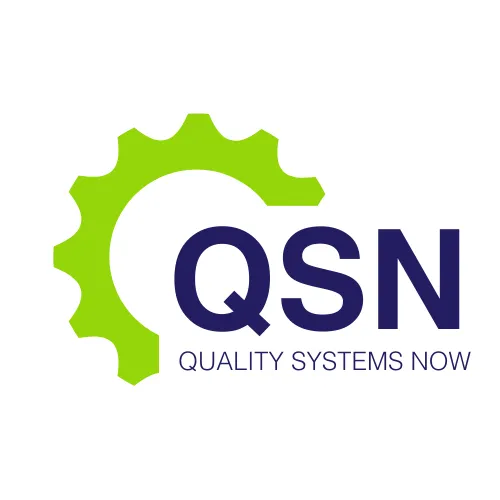NEWS

Best Practice AI applications in the Pharmaceutical Industry
Introduction
Artificial intelligence (AI) is rapidly transforming the pharmaceutical industry, offering unprecedented opportunities to enhance drug discovery, streamline clinical trials, and improve patient outcomes. However, the integration of AI into pharmaceutical processes necessitates a robust framework to ensure ethical, transparent, and accountable use. This article delves into the principles and practices of good AI governance within the pharmaceutical sector, drawing on insights from Quality Systems Now and their perspective on implementing responsible AI across regulated environments.
The Imperative for Ethical AI in Pharmaceuticals
The adoption of AI in pharmaceuticals brings forth challenges related to data privacy, algorithmic bias, and decision-making transparency. Ethical AI practices are essential to mitigate these risks and maintain public trust. Quality Systems Now emphasizes the importance of aligning AI initiatives with quality systems, ethical standards, and compliance obligations to ensure that AI applications are fair, accountable, and beneficial to both patients and the industry.
Quality Systems Now's AI Framework
Quality Systems Now promotes a structured and pragmatic framework for the responsible use of AI in the life sciences sector. Their approach is anchored in four foundational pillars:
Inventory of AI Technologies: Establishing a centralized, maintained record of AI tools in use across systems and functions to monitor deployment, lifecycle status, and performance outcomes.
Definition of AI Applications: Clarifying the intended use, boundaries, and risk profile of AI systems, particularly where they impact data integrity, product quality, or patient safety.
Governance Framework and Controls: Implementing quality and compliance-focused governance to oversee the development and operationalization of AI within GMP, GCP, and GxP contexts.
AI Standards and Quality Policies: Creating harmonized policies that ensure AI development and usage align with Good Automated Manufacturing Practice (GAMP), data governance expectations, and regulatory authority guidance.
This framework ensures that AI is deployed in a manner that meets both ethical imperatives and regulatory requirements, with documented justification and oversight at every stage.
Principles Guiding Ethical AI Use
The ethical deployment of AI is underpinned by several guiding principles advocated by Quality Systems Now:
Transparency: AI models and outputs must be explainable to both technical and non-technical stakeholders. Clear traceability of data sources, decision logic, and model versioning is essential.
Fairness: Developers must assess and mitigate bias in AI algorithms. Input datasets should be representative, and model performance should be evaluated across sub-populations to ensure equity.
Accountability: There must be clearly defined roles and responsibilities for AI system governance, spanning developers, QA professionals, business owners, and end-users.
Human-Centricity: AI must support—not replace—critical human judgment, especially in high-stakes regulatory environments. Final decisions affecting product quality or patient safety must remain with qualified personnel.
Social Benefit: AI implementations should aim to improve product availability, reduce time-to-market, and support safer, more effective medicines and devices.
These principles provide a strong foundation for responsible AI innovation, reinforcing the value of quality oversight and lifecycle documentation.
Implementing Ethical AI Practices
Quality Systems Now advises organizations to adopt actionable strategies for embedding good AI practice across the AI lifecycle. These include:
Responsible AI Implementation Roadmap: A stepwise implementation framework aligned with regulatory standards such as PIC/S, TGA guidance, ISO/IEC 23894 (AI Risk Management), and ICH Q10.
Cross-Functional Governance Teams: Establishing a dedicated working group that includes QA, IT, regulatory affairs, and data science functions to collaboratively review and validate AI initiatives.
Ethics and Risk-Based Audits: Conducting periodic audits of AI-based systems with specific criteria around data integrity, algorithm transparency, and validation adequacy.
Training and Awareness: Delivering targeted training for staff to improve awareness of AI-related risks and control mechanisms, especially where AI intersects with quality-critical systems.
By taking a quality-driven, risk-based approach, Quality Systems Now ensures AI implementations align with compliance obligations while also driving operational improvement.
Addressing Challenges in AI Governance
Despite its benefits, AI introduces several governance challenges that must be carefully managed:
Data Quality and Bias: Poor data quality can undermine model reliability. Processes must be in place to assess dataset fitness-for-use and to document data provenance.
Validation of Non-Deterministic Systems: AI systems, particularly those employing machine learning, may exhibit non-deterministic behavior. Traditional validation approaches must be adapted with a focus on model performance metrics and retraining protocols.
Dynamic and Adaptive Algorithms: For AI systems that continue learning post-deployment, mechanisms are needed to monitor ongoing performance and manage drift.
Compliance Across Jurisdictions: Global pharmaceutical companies must ensure AI systems meet varying regulatory expectations, including those from TGA (Australia), EMA (Europe), and FDA (USA).
Quality Systems Now works with clients to identify these challenges early and implement tailored controls to reduce risk and ensure readiness for regulatory scrutiny.
AI's Role in Modernizing Pharmaceutical Operations
AI offers tangible benefits across multiple domains of pharmaceutical and medical device operations:
Drug Discovery: AI models accelerate hit identification, compound screening, and molecular design, potentially reducing R&D timelines by years.
Clinical Research: Algorithms can optimize trial design, identify eligible patient populations through EHR mining, and reduce dropout rates by predicting adherence.
Manufacturing: Predictive maintenance, quality defect prediction, and smart batch release strategies are increasingly AI-enabled, leading to efficiency and higher yields.
Post-Market Surveillance: AI tools analyze real-world data to detect adverse event trends, monitor product performance, and support pharmacovigilance.
By supporting innovation with strong compliance foundations, organizations can integrate AI into critical operations while preserving patient safety and data integrity.
Talk To Us Today to find out more
The promise of artificial intelligence in the pharmaceutical industry is vast—but realizing that potential requires responsible implementation and governance. Quality Systems Now advocates for a systematic, risk-based, and ethically aligned approach to AI adoption that incorporates regulatory expectations, quality principles, and organizational accountability. As AI applications grow in complexity and influence, companies that embrace good AI practice will be best positioned to innovate with integrity.
